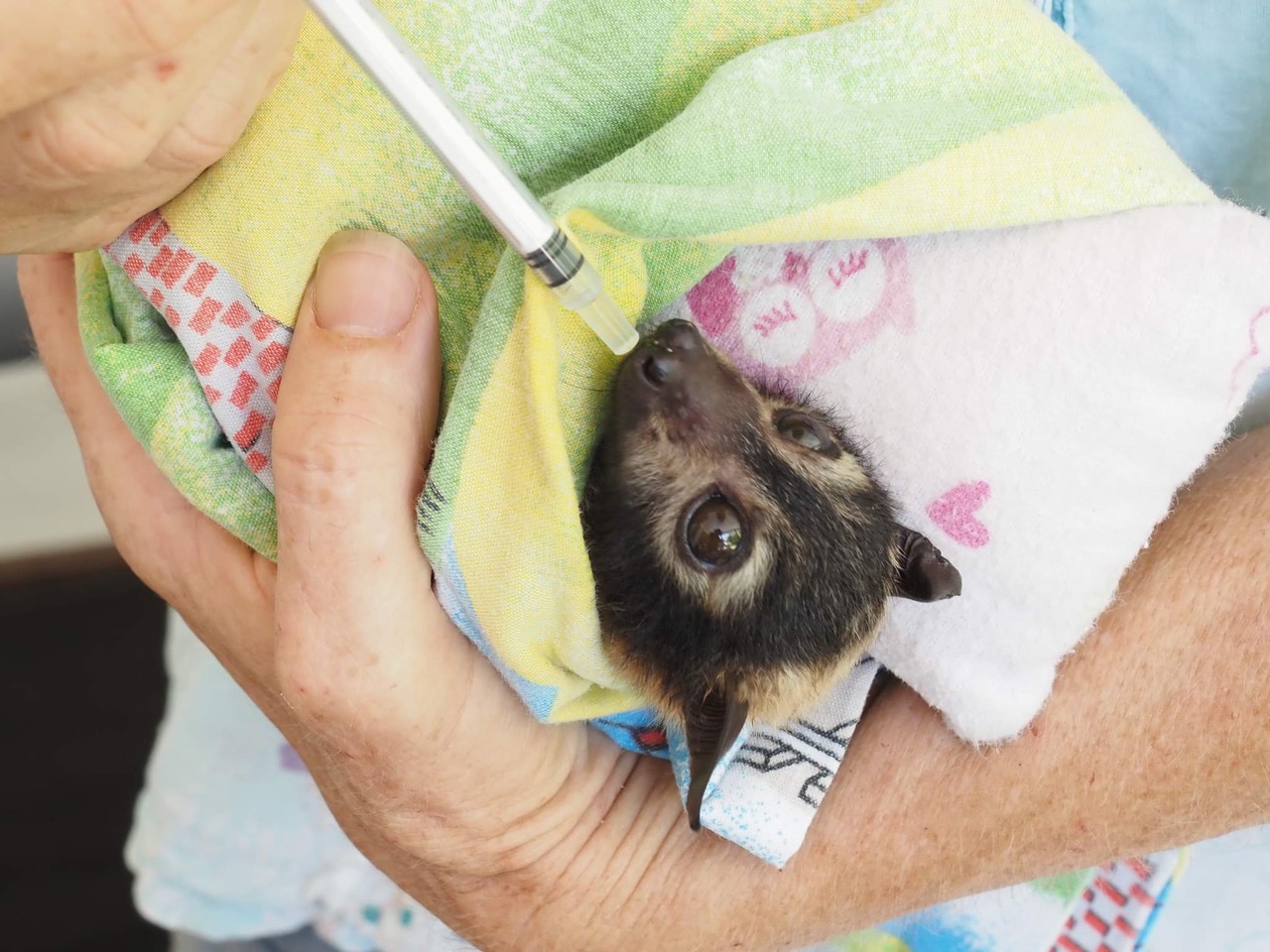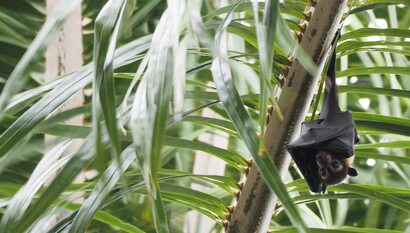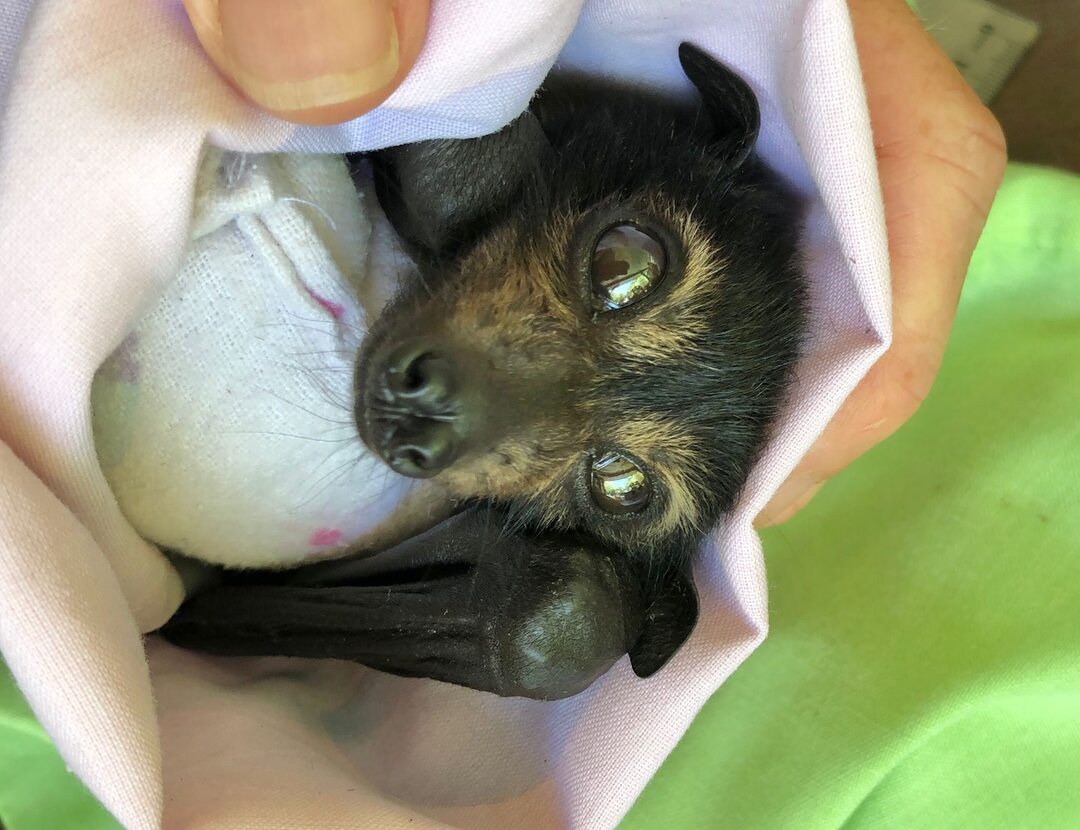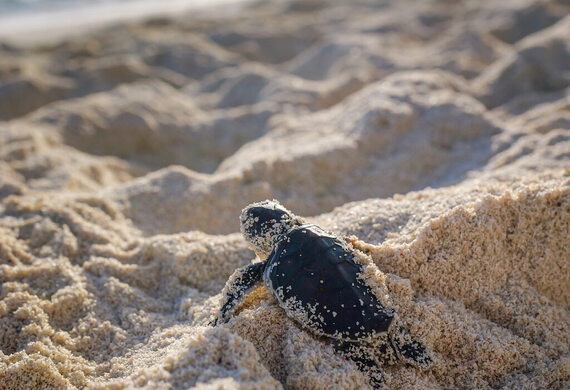Port Douglas’ flying foxes: our secret weapon to combat climate change
ENDANGERED SPECIES

Flying foxes; many people don't realise that these local inhabitants are an important and special species, found only in a handful of places in the Far North. Unfortunately they are endangered and need our support.
Port Douglas is a significant location for a large colony of the Spectacled Flying Foxes.
While they may not stay all year round, research shows that our town is possibly a stronghold for this species supporting upwards of 10,000 flying foxes at any one time.
Although it may seem like there are a lot of them, a single heat event can wipe out thousands at a time, which is detrimental for us humans as well as for the tropical environment we love so much.

A key species
Port Douglas local Kate Koel is committed to rescuing and researching flying foxes in the area.
She explained to Newsport that these special species play a very important role in ensuring the survival of threatened rainforests such as those found in the Wet Tropics.
“They are Australia’s only long distance pollinators and seed dispersers and are considered a keystone species as their role helps to support entire ecosystems,” Ms Koel said.
“This is part of why they have been included in the 110 priority species in the federal government’s Threatened Species Action Plan, being one of only two animals in Far North Queensland to be included in this list.
“They have been described as a ‘secret weapon’ against climate change and will play a critical role in restoring landscapes damaged by bushfires and deforestation.”
Injured pups
Between September and November last year, 50 injured flying foxes pups were found in the Port Douglas area during the birthing season.
“Of the 50 pups found, only 27 were alive and taken in by the Tolga Bat Hospital and other carers in the region,” Ms Koel said.
She explained that many pups come into care for many reasons including electrocution from power lines, dog and cat attacks, malnourishment, tick bites, and car strikes.
During the birthing season, Ms Koel would check the camps of the flying foxes in the area on a daily basis from 8.00am onwards.
“Often you will hear a pup calling, other times you will just spot them. They can be on the ground, in low branches, in peoples backyards, hanging off gutters.
“At that point we collect them, check for injuries and assess general health. They then go to a carer who has the huge task of raising them as a surrogate mother until they are ready for release towards the end of February.
“Many important little lives have been able to be saved this season, and hopefully there will only be greater support for them in this area in the future.”
Research
Out of a need for greater information on this species in the area, Ms Koel started the ‘Flying Foxes Project’.
“The research initially started to help us learn a best practice approach for attempting to reunite the separated pups we had found,” she said.
“What we quickly learnt was that the pups that came into care were consistently 20 to 30 percent underweight and needed to remain in care.
“Flying foxes became an endangered species due to habitat clearance, food shortages and instability, culling, and mass die-off events in the wake of cyclones and heat waves.
“One single heat event is capable of wiping out one third of their population. This is what happened in Cairns in 2018 when 23,000 Spectacled Flying Foxes perished.
“Flying foxes can cause a strong reaction in people but it is essential to this species’ population recovery that we learn to coexist with wildlife and appreciate the role they play in healthy ecosystems.”
For more information about Far North Queensland’s flying foxes and the research that is being done, click here.

Thank you!
Newsport thanks its advertising partners for their support in the delivery of daily community news to the Douglas Shire. Public interest journalism is a fundamental part of every community.
Got a news tip? Let us know! Send your news tips or submit a letter to the editor here.
* Comments are the opinions of readers and do not represent the views of Newsport, its staff or affiliates. Reader comments on Newsport are moderated before publication to promote valuable, civil, and healthy community debate. Visit our comment guidelines if your comment has not been approved for publication.























